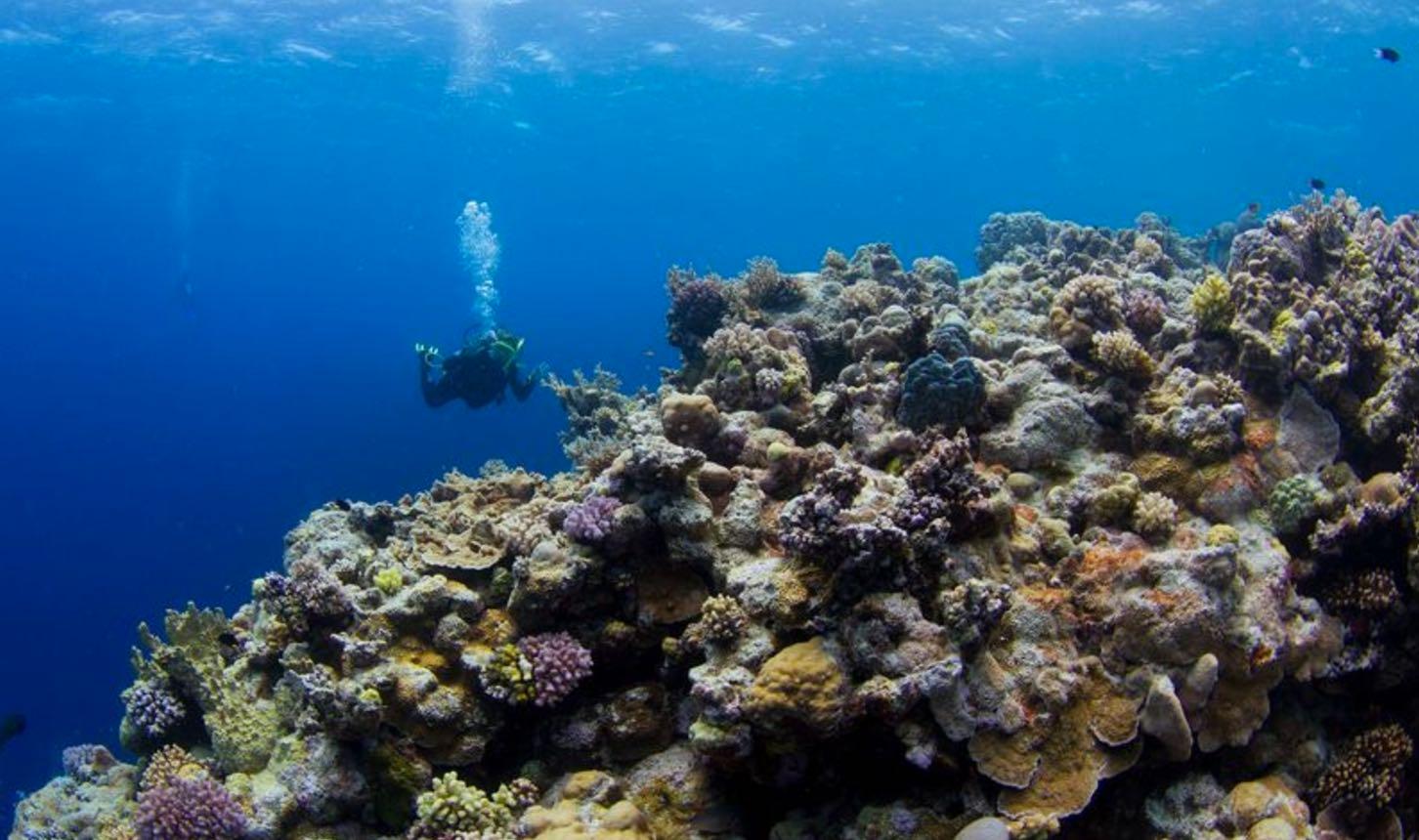Scientists say the Great Barrier Reef is officially dying
Conditions for the Great Barrier Reef are "terminal," some scientists say.
In recent years, things have been overwhelmingly bad for the Great Barrier Reef.
Scientists say that one of our world's greatest natural treasures is now truly "terminal." This news comes after sequential, massive bleaching events — which is what happens when ocean temperatures rise beyond levels that coral reefs can survive.
Climate change is the primary culprit, and while it's long been suspected that reefs would be devastated by ocean warming, scientists were not expecting this much destruction for another 30 years.
What does this mean for our oceans and the environment? Fabien Cousteau, an aquanaut, environmental advocate and founder of the Fabien Cousteau Ocean Learning Center — and grandson of famed explorer and conservationist Jacques Cousteau — says that the climate-change-related destruction of coral reefs functions as a “canary in the coal mine” for the rest of the planet. (To learn more about the plight of the oceans, check out The Takeaway's related series, "Trashing the High Seas.")
“They have taken quite a beating, as we’ve seen lately in the news, and unfortunately, that’s not going to stop,” Fabien Cousteau says. “It’s highly alarming.”
The Great Barrier Reef, the only living structure visible from outer space, took hundreds of thousands of years to develop and is home to one of Earth’s most complex ecosystems.
“The stony corals, which is what everyone is focusing on right now, has been quite badly battered and damaged, and there are hundreds of species of hard corals within that ecosystem, some of which resist better than others to climate change,” Cousteau says. “Many of them bleach, unfortunately, for various reasons, including the temperature variations, and that’s what we’re seeing right now.”
Though the Great Barrier Reef is going through an extreme stress event, Cousteau offers cautious hope for the future of this natural wonder.
“Nature is a phenomenal thing,” he says. “Nature has three general rules that it lives by, and adaptation is one of them. Of course, when there are vacancies within those coral reefs, other critters, other organisms, fill those gaps typically. Not necessarily the ones that we’re used [to] or the ones that a coral reef can thrive on, but it is one of those things where space is a premium and a coral reef, being an underwater city, has vacancies, and therefore, other creatures go in there. So, you’ll see a morphing over the years from different species and different colors, but it’s not going to be as complex and rich an ecosystem.”
With the destruction of the Great Barrier Reef and others like it, Cousteau says the world loses “knowledge that we never even had a chance to get to.” However, technology may offer a partial solution for the ocean’s threatened ecosystems: Experimental installations of 3-D printed reefs are now being introduced in the Caribbean, the Mediterranean Sea, the Persian Gulf and Australia.
“Coral is a complex colony, if you will, of animals,” says Cousteau. “Basically, there are two components — the hard structure, and then the residents, which are the zooxanthellae, and those are the polyps; those are what give the coral color. When they’re disrupted, they eject themselves, and that’s when you get the coral bleaching. [With 3-D printing], we’re creating structure, we’re creating the buildings, the infrastructure or the housing, if you will, for those zooxanthellae to come back.”
Additionally, Cousteau says that scientists and conservations are also using hybridization techniques to help coral adapt to the effects of manmade climate change. However, he argues, this isn’t a permanent solution.
“The ‘problem’ of climate change is a very complex one — it comes from a lot of different sources, and most importantly, from our everyday bad habits,” he says. “Doing 3-D coral printing happens to be just a drop in the bucket in addressing a very large global problem. We know where we’re headed if we don’t do anything, so I’m charging full on into it, and I encourage everybody on this planet to do the same so that we can hope for a better world.”
This story originally appeared on The Takeaway.
